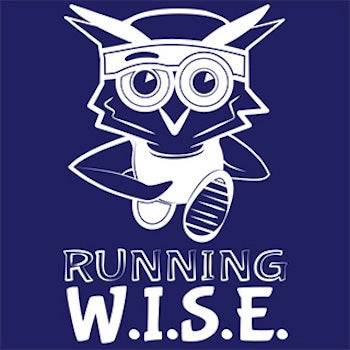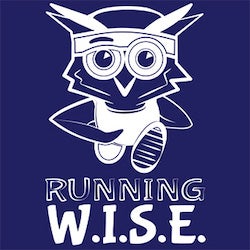HOUSTON – (March 21, 2022) – Regular exercise is good for everyone, and youngsters stand to benefit most -- if they stick to it.
Rice University researchers are figuring out how to encourage that tenacity. A new study by a team of kinesiologists matched undergraduate mentors at Rice with local fifth graders to get them to step up their games.

Though the numbers in this pilot study were small, the recruitment and retention of mentors and mentees was unbeatable: 100%.
Their study in the journal Recent Progress in Nutrition follows 22 pairs of mentors and elementary students from a single classroom in a pilot program called Running W.I.S.E. -- With Interscholastic Student Engagement. It demonstrated qualitatively, via feedback through their mentors, that scheduled physical activity was indeed good for their physical health and mental well-being.
Surprisingly, it was just as good for the Rice students.
“We knew from other mentoring studies that there are definite benefits to the mentors as well as to the mentees,” said Laura Kabiri, an assistant teaching professor of kinesiology, who led the study. “But we were quite surprised to see just how much our students have benefitted -- and also have a better idea of exactly how they benefited, rather than just saying, ‘Oh, it’s good for us to go do.’”
“As a college student, it’s really hard to set aside time to be physically active myself,” said Andrea Pineda, a senior kinesiology major whose mentee struggled with asthma during their early runs. “I know the program was meant for the students to benefit but it was also beneficial for me to get that 30 minutes of physical activity and enjoy conversation with him.”
She said the program encouraged her to keep running during the pandemic, a regimen she continues to follow five days a week.
Pineda said her mentee clearly benefited from the sessions as well. “At the very beginning it was tough to assess when we needed to keep going or slow down, or to stop and get his inhaler,” she said. “Towards the end he seemed to enjoy running more, and was less discouraged because he needed fewer stops.”
Kabiri noted teachers are too constrained to take on the job of one-on-one physical activities with their students, and may not have the training to do so. But the Rice-based mentors who did have the training and volunteered their time for credit reduced the burden on teachers.
“It really allowed the teacher to have a guaranteed period of time during the day when the kids were occupied, and doing healthy things,” Kabiri said.
Mentors received ethics and engagement training with school administration, technical training on activity trackers and background checks through the charter school involved in the program.
The study was cut four weeks short by the COVID-19 pandemic, running from January to March 2020, during which Rice students would visit their mentees twice a week for 30-minute runs, along with warmup and cooldown sessions.
Previous studies have suggested physical activity in childhood continues to help people as they become adults. The trick, Kabiri said, is getting the students to start down that path.
“One of the next things that we hope to incorporate is using the mentoring system in a pathological population, working with children and adolescents with cancer diagnoses, and perhaps even help them transition back into the public schools, into physical education classes and sports,” she said.
Co-lead authors of the paper are Rice undergraduate researcher Uma Kelavkar, assistant teaching professors Amanda Perkins-Ball and Cassandra Diep, and associate teaching professor Augusto Rodriguez.
- Peer-reviewed paper
-
Physical Activity Mentoring in Schools: An Undergraduate-Mentored Running Intervention for Elementary Students: https://lidsen.com/journals/rpn/rpn-02-01-009
- Image download
-

https://news-network.rice.edu/news/files/2022/03/0321_RUNNING-1-WEB.jpg
Getting out and mentoring elementary students in physical fitness turns out to be just as beneficial for college students, according to Rice University kinesiologists behind Running W.I.S.E. (Credit: Illustration by Robert Weaver)
- Related materials
-
Kabiri Research Group: https://kabiri.rice.edu
Department of Kinesiology: https://kinesiology.rice.edu
Wiess School of Natural Sciences: https://naturalsciences.rice.edu
- About Rice
-
Located on a 300-acre forested campus in Houston, Rice University is consistently ranked among the nation’s top 20 universities by U.S. News & World Report. Rice has highly respected schools of Architecture, Business, Continuing Studies, Engineering, Humanities, Music, Natural Sciences and Social Sciences and is home to the Baker Institute for Public Policy. With 4,052 undergraduates and 3,484 graduate students, Rice’s undergraduate student-to-faculty ratio is just under 6-to-1. Its residential college system builds close-knit communities and lifelong friendships, just one reason why Rice is ranked No. 1 for lots of race/class interaction and No. 1 for quality of life by the Princeton Review. Rice is also rated as a best value among private universities by Kiplinger’s Personal Finance.

